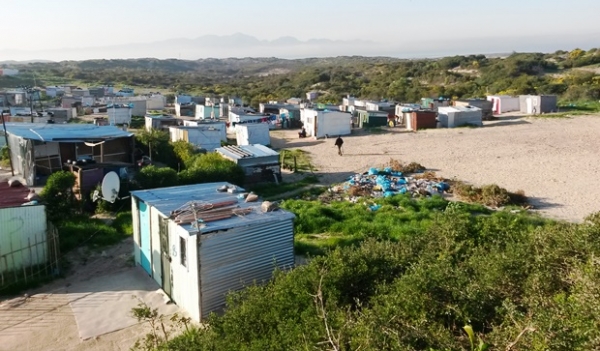Khayelitsha residents challenge eviction in court

Lawyers representing residents of Newcastle informal settlement in Khayelitsha are to challenge the City of Cape Town’s compliance with eviction orders in court on Wednesday, 26 August.
According to the Prevention of Illegal Eviction and Unlawful Occupation of Land (PIE) Act of 1998, a landowner who wants to evict people must erect notice boards and convey the message over a loudhailer in at least two different languages.
The law aims to protect both landowners and occupiers.
In papers filed to the Western Cape High Court, a group of about 70 families say they have been living on the land directly behind the Endlovini informal settlement in Khayelitsha since May 2014. Just two months after erecting their structures, they say they were informed that the courts had granted an eviction order to the City of Cape Town.
Yet the residents insist the city did not comply with the eviction order granted by Western Cape High Court Judge Thandazwa Ndita and consequently want to have the eviction declared invalid.
In the court papers, residents question whether it would be “just” to evict them before the City had engaged with them and “fulfilled their basic human rights”.
Included in the court papers are the results of a socio-economic survey done by the group’s legal team with help from the Development Action Group in July 2015.
The survey found that the residents had previously lived in Endlovini as backyarders or sharing with family and friends. There were about 112 adults and 86 children living in Newcastle, most of whom were informally employed or unemployed, with more than 30 people solely dependent on child welfare grants.
In the papers, the residents ask the court to oversee mediated meetings between the City and the Newcastle Executive Committee to negotiate the provision of “suitable alternative accommodation” in Khayelitsha.
“Within three months, the Applicant [City] should file reports on the engagement with residents in respect of the eviction, land available to accommodate the residents, and why (if any) it cannot provide alternative accommodation …The current or future eviction orders to evict the residents be suspended pending the compliance with the requirements,” the residents state in the papers.
They also want the City to provide water, toilets and electricity on the land and ask the court to order the City to pay the costs of the hearing.

Mxoliseni Zwayi, one of the community leaders, overlooking Newcastle Informal Settlement. Photo by Barbara Maregele.
In one of several affidavits submitted to court, 37-year-old resident Mxoliseni Zwayi details residents’ reasons for filing the counter application. Zwayi is also the chairman of the executive committee.
“I’m advised that the purpose of the notice provision in the PIE Act is to provide additional protection to people facing eviction… [We] were not given effective notice. None of the affected residents who were there can confirm that the Sheriff in fact used a loudhailer to read out the contents of the notice in both English and Xhosa,” he said.
Zwayi said he had a part-time job and lived in a one-room shack with his wife and their three young children.
In the affidavit, he said when the notice was served on 27 August last year, copies of the order were handed out to a few people who were home at the time.
“The notice was served on a weekday when most people were either at work or away and could not reasonably have received proper notice and were therefore unable to place their relevant circumstances before the court.”
Zwayi said because there were no toilets, people were forced to use the dunes and bush just metres away from their shacks.
“Most people only relieve themselves in the bush during the day and use buckets at night.”
The City’s mayoral committee member for Human Settlements, Benedicta van Minnen, confirmed that “an eviction matter was brought against the unlawful occupants of Erf 18370.”
Van Minnen said she could not give any further information as the matter was sub judice.
The case will be heard in the Western Cape High Court court at 10am on Wednesday.

This article is licensed under a Creative Commons Attribution-NoDerivatives 4.0 International License.


